DALLAS – FORT WORTH NOISE LEVEL OSHA COMPLIANCE & SOUND ORDINANCE (DNL – DAY NIGHT LEVEL) SURVEYS (DATA LOGGING / IMPULSE)

214.912.4691
You can text to this number anytime 24/7 as well for brief inquiries or email.
*ScanTech DOES NOT perform residential testing OR consulting for homeowners / tenants – all services are COMMERCIAL / INDUSTRIAL / MEDICAL / ENVIRONMENTAL ONLY.
RESIDENTIAL & HOMEOWNERS / TENANTS CLICK HERE
Environmental noise is a form of acoustic pollution which has the potential to disrupt human communication, create annoyance, damage hearing and is regulated by the federal OSHA (Occupational Safety and Health Administration) Noise Standard 29 CFR 1910.95 along with other state agencies. In some cases it can also interfere with sensitive equipment such as that used in the nanotechnology and semiconductor industry.
It is also regulated in many residential areas by municipalities such as Fort Worth, McKinney and Grapevine to provide comfort and peace to residents.
1) Physical address of the facility and layout including rough square footage involved
2) Contact information for the facility and / or the EH&S, Safety Supervisor, etc. including email, best phone number(s) including a cell number
3) Company name and the nature of your business / industry
4) Examples and placement of the kinds of equipment that emits sound levels of concern (a visual equipment layout is VERY helpful for this)
5) Timeline to accomplish
6) What are your typical payment terms and what is your vendor vetting process like (what paperwork needs to be filled out to establish a working relationship including the NDA)
7) A brief narrative as to WHY you are requesting a sound / noise survey (employee concerns, OSHA citation, neighborhood noise complaint, etc.)
If you are receiving complaints from workers, or have been contacted by OSHA regarding a potential excessive noise issue, ScanTech can evaluate the environment for continuous (data-logging over time) and impulsive noise on the dB(A) and dB(C) scales to determine compliance. We can also fit workers with a continuous dosimeter to track sound pressure levels as they move into different work areas at different times of day. (meeting ANSI & IEC Type II standards)
Our sound level meters are able to average noise at slow, (1 second per sample) fast (0.125 seconds per sample which corresponds to the response time of the human auditory system) or custom sampling rates as fast as 0.035 seconds which are used for impulsive (sudden, short) noise measurements. Impulse sounds are generally defined as acoustic events lasting less than 1 second with a repeat interval of greater than 1 second.
The data logging function also enables the measurement of reverberation which is the measurement of time it takes for the sound level to drop 60 dB or a factor of 1 million, and characterizes how “reflective” a room is to acoustic vibrations.
Because sound pressure levels are measured on a logarithmic scale, (power ratios of 10) an increase in decibels beyond a certain point means that the energy impacted on the ear can quickly pass a threshold where damage can occur. As shown in the chart below, even an increase of 5 dB can greatly reduce the duration before hearing loss can occur.
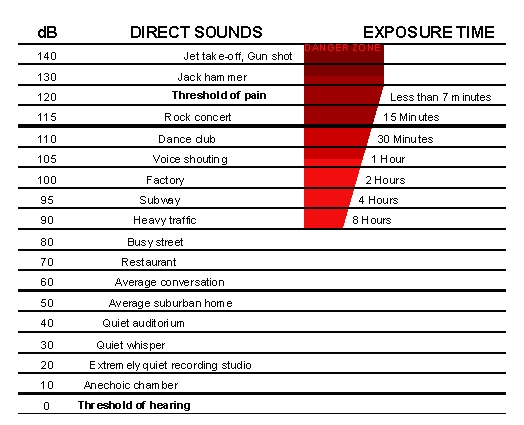
Sound Levels in dBA vs. Physical Effects and OSHA Exposure Time
Note that sound levels above 70 dB begin to interfere with voice communication, while 75 dB and above are generally characterized as annoying. (but dependent on frequency as shown below)
The general effects can be studied in the response table below:
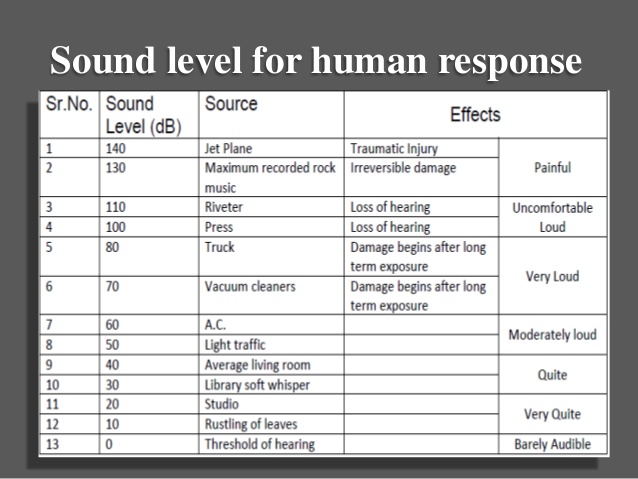
Hearing Damage from Different Noise Levels as Low as 70 dBA
Fortunately, sound pressure levels also decrease with the square of the distance, so moving twice as far away means that the power level decrease by a factor of 4. Bear in mind that 3 decibels (dB) reflects a change in power level by a factor of 2, with +3 dB being twice as loud and -3 dB being half as loud.
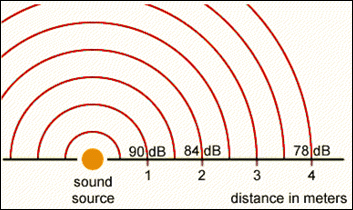
Sound Levels Decrease with Distance Example
Also, the human ear does not have a “flat” frequency response – so frequencies at the extreme edges of hearing perception (from 20 Hz to 20,000 Hz) are not perceived to be as loud as those centered around 1 KHz – 3 KHz which is in the range of normal human speech.
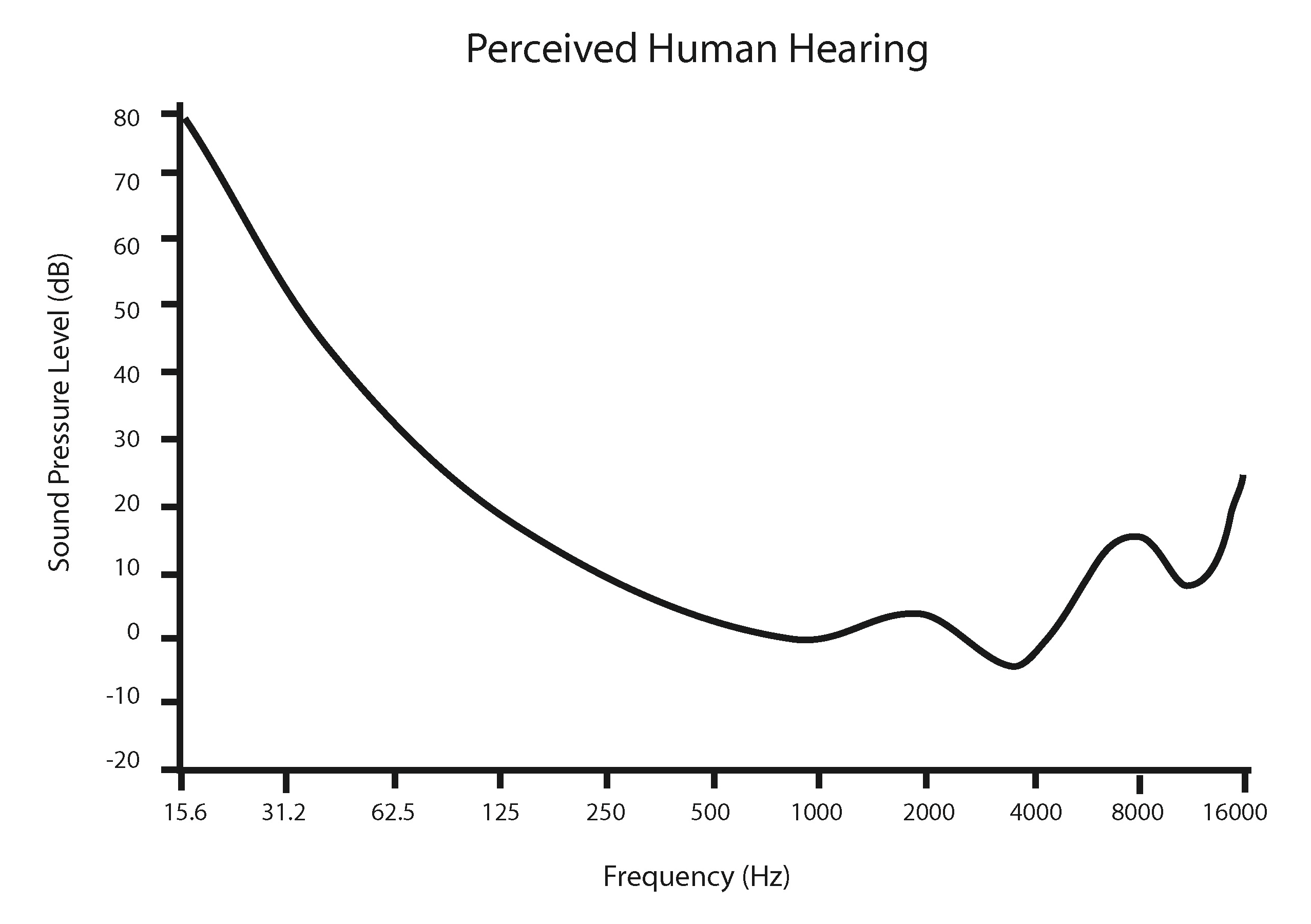
Perceived Human Hearing vs. Frequency
Therefore, different measuring scales on sound meters are used to distinguish between “human” hearing (dBA) and “machine” hearing (dBC) which has a flatter frequency response.
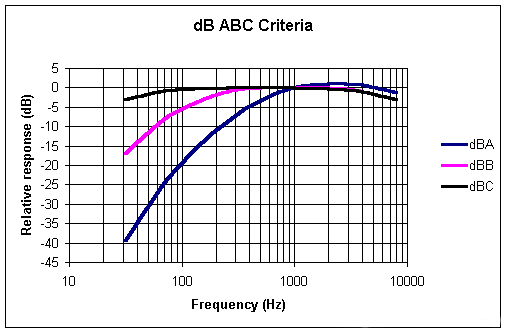
Sound Weighting of dBA, dBB and dBC Curves at different frequencies
In general, interference with speech communication occurs when intrusive noise exceeds about 60 dB (Federal Interagency Committee On Noise 1992). Indoor speech interference can be expressed as a percentage of sentence intelligibility among two people speaking in relaxed conversation approximately 3 feet apart in a typical living room or bedroom (U.S. Environmental Protection Agency 1972).
The percentage of sentence intelligibility is a non-linear function of the (steady) indoor background A-weighted sound level. Such a curve-fit yields 100 percent sentence intelligibility for background levels below 57 dB and yields less than 10 percent intelligibility for background levels above 73 dB. The function is especially sensitive to changes in sound level between 65 dB and 75 dB.
As an example of the sensitivity, a 1 dB increase in background sound level from 70 dB to 71 dB yields a 14 percent decrease in sentence intelligibility. The sensitivity of speech interference to noise at 65 dB and above is consistent with the criterion of DNL 65 dB generally taken from the Schultz curve. This is consistent with the observation that speech interference is the primary cause of annoyance.
Typically, homes in the United States provide 15 dB of sound attenuation with windows open and 25 dB with windows closed and air conditioning operating. Commercial buildings offer anywhere from 30 – 45 dB of sound attenuation depending on construction and geometry with respect to noise point sources.
Some guidelines on judging sleep interference. The EPA identified an indoor DNL (Day-Night Average Sound Level) of 45 dB as necessary to protect against sleep interference (U.S. Environmental Protection Agency 1978). Assuming a very conservative structural noise insulation of 20 dB for typical dwelling units, this corresponds to an outdoor day-night average sound level of 65 dB to minimize sleep interference.
ScanTech Technical Consulting also has experience in doing “on-paper” studies for environmental impact and Environmental Survey Assessments (ESA) including the DNL influence of major roadways, railways, airports, etc. including the CEQR noise level standards of New York City. There are DNL ordinances in cities like Fort Worth and Grapevine (Section 55 Part A 3) which is shown. Dallas does not give numbers, but situational guidelines for noise in the following link:
McKinney Noise Ordinance (Abbreviated) which is similar to Allen and Plano
A business or person would be in violation of the city’s noise ordinance at a residential property line if the sound pressure level of activity exceeds 65 decibels for daytime hours and 58 decibels at nighttime, according to the new ordinance. At a nonresidential property line sound pressure level of any activity should not exceed 70 decibels for daytime hours and 60 decibels at nighttime.
Daytime hours are from 6 a.m.- 9 p.m., according to the ordinance.
This is in line with maximum decibel levels outlined in the code of ordinances for nearby Allen and Plano.
According to city’s noise ordinance, a business can still not operate power equipment between 10 p.m.-7 a.m. if it is located in a residential district or quiet zone. A quiet zone extends 500 feet from the nearest property line of any residential district or property with a school, college, hospital, library, clinic or other noise-sensitive facility.
Grapevine Section 55 Part A 3 DNL Ordinance Example:
NOISE REGULATION: This ordinance shall apply to all sound originating within the limits of the City of Grapevine, Texas. It applies 24 hours of everyday of the week and year around. This ordinance does not apply to any moving vehicle or aircraft nor does it apply to sound emitted from any emergency warning device. This ordinance does not apply to the following activities as long as they are conducted in daytime hours as a normal function of a permitted, conditional or special use and the equipment is maintained in proper working condition:
· Lawn and yard maintenance
a. General Provisions
1. A person may not conduct a use that creates a sound which exceeds the sound levels established in Table 1 or that exceeds the background sound levels by 5 dBA., whichever is greater.
2. A sound level meter that meets the standards of ANSI with Type 2 or greater precision must be used to determine whether the level of sound violates those established in this section. The instrument must be maintained in good working order. A calibration check should be made prior to and following any noise investigation.
3. The sound levels must be measured at the bounding line between properties at a level five feet above ground level.
4. A sound level meter shall be used to determine the Leq in dBA over an 8 minute time period.
5. The sound receiving property with the most stringent requirements will apply.
6. Traffic, aircraft, and other background sounds are not to be considered in measuring sound levels except when the background sound level is being determined.
7. All outdoor speakers in non-residentially zoned properties shall face away from contiguous residential zoning districts.

Sound & Noise Level Survey Reference Table
Corrections for Character of Sound Applied to Table 1. values are as follows:
· If Sound is Impulsive in Character – (hammering, popping, exploding, etc.) Subtract 5 dB from Maximum Permissible Sound Levels
Note that for the purpose of this ordinance, an impulsive sound shall exist when the sound changes at rate greater than 10 dB per second. The sound level meter should use Fast Response for this evaluation.
· If Sound is Periodic in Character – (hum, buzz, screech, etc.) Subtract 5 dB from Maximum Permissible Sound Levels
Note that for the purpose of this ordinance, a pure tone shall exist if the one third octave band sound pressure level with the tone exceeds the arithmetic average of the sound pressure levels of the two contiguous one-third octave bands by 5 dB for center frequencies of 500 Hz and above and by 8 dB for center frequencies between 160 and 400 Hz and by 15 dB for center frequencies less than or equal to 125 Hz. A one-third octave band spectrum analyzer instrument will be required to make these evaluations.
CEDAR HILL NOISE ORDINANCE
Cedar Hill Noise Ordinance Sec. 23-5.5.3
END MUNICIPAL NOISE LEVEL ORDINANCE EXAMPLES
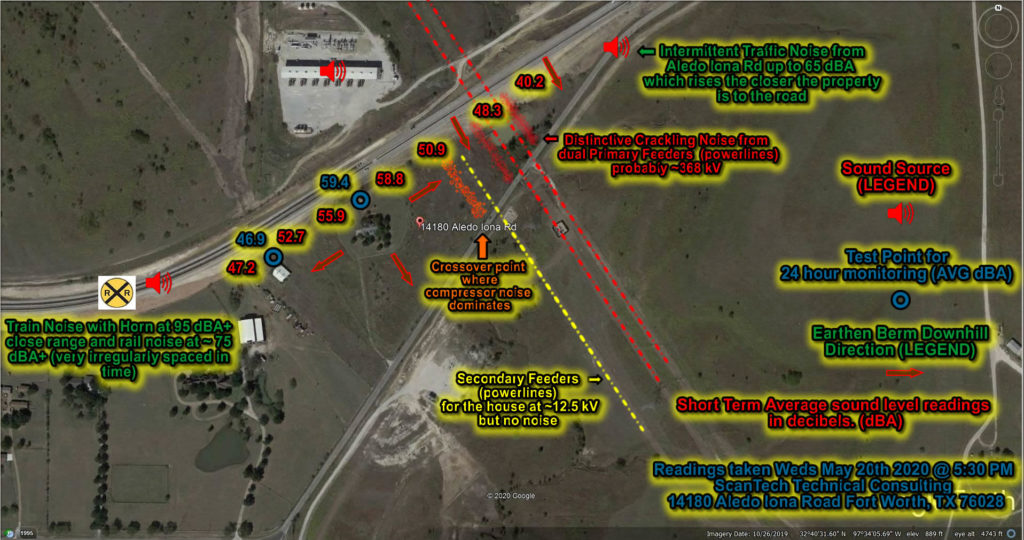
Sound & Noise Level Survey on an Aerial Readings Map with Descriptive Annotations
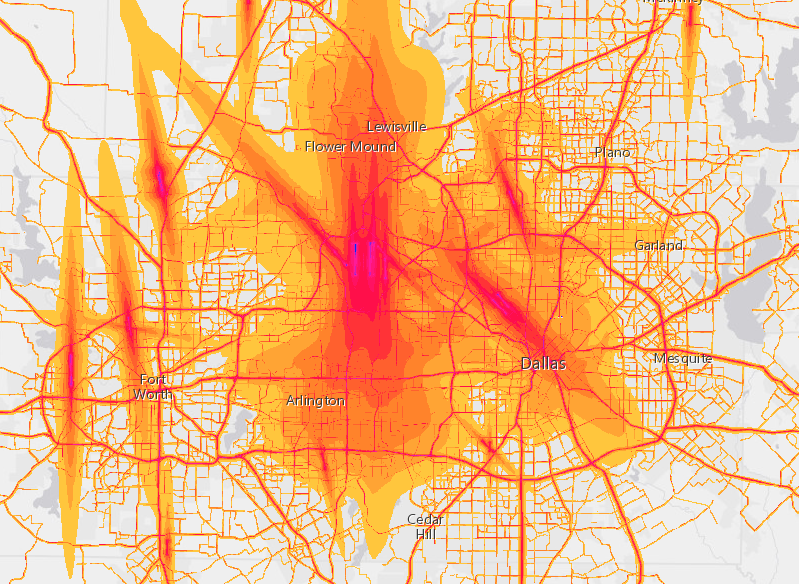
Dallas – Fort Worth DFW Noise & Sound Level Map
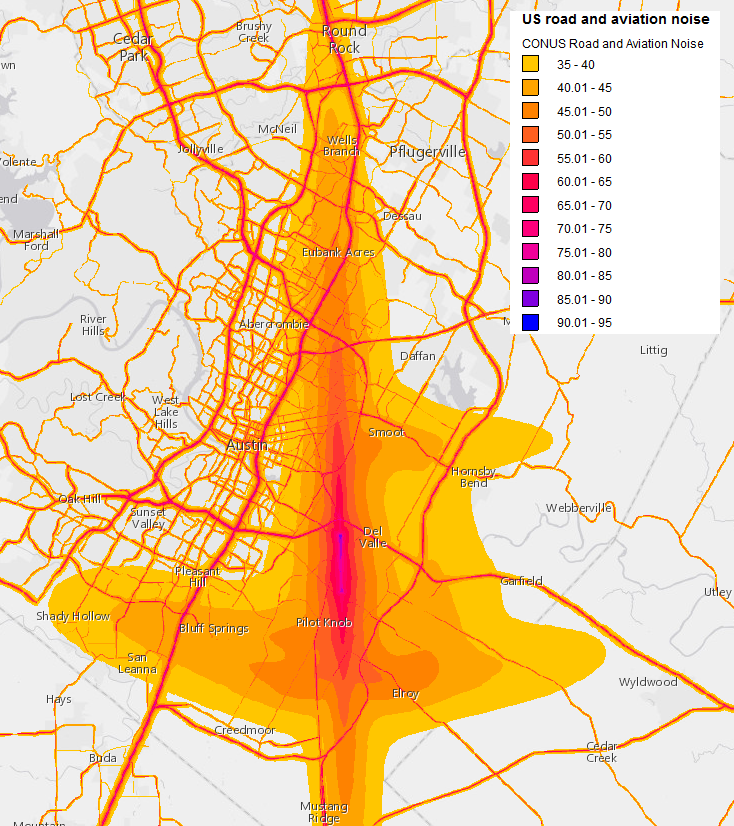
Austin Noise & Sound Level Map
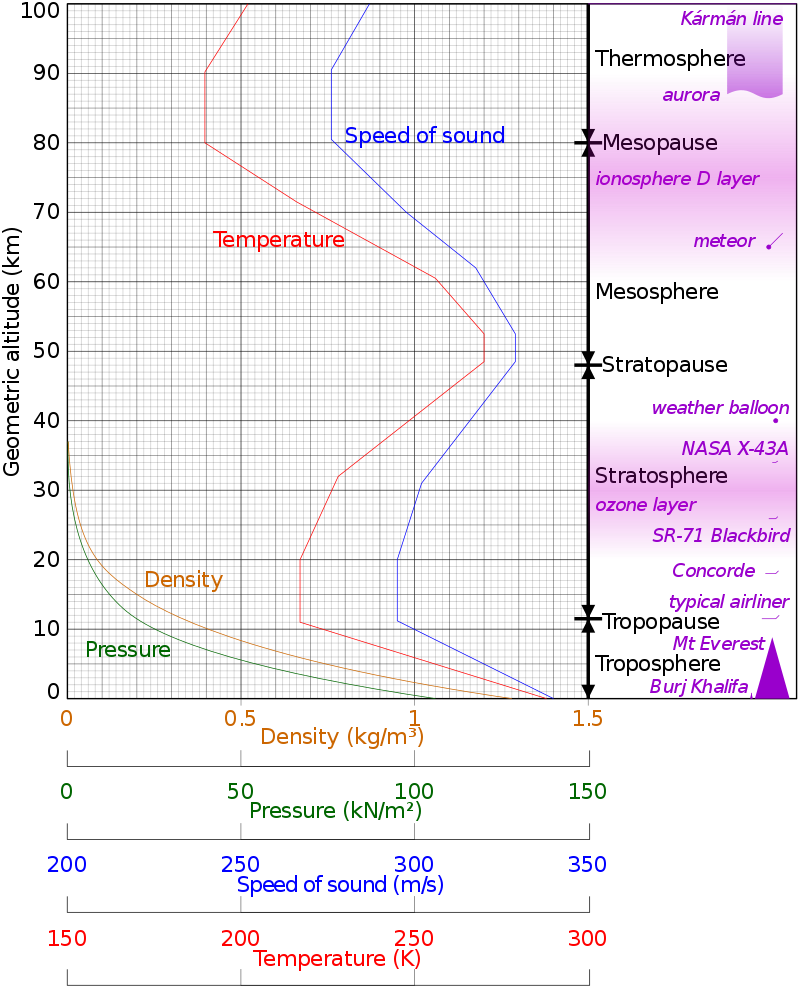
Speed of Sound Variations by Altitude / Temperature
SOUND & ACOUSTICAL LINKS INCLUDING HEARING TESTING
http://www.acousticalsurfaces.com/
https://web.archive.org/web/20201119222812/https://www.soundproofing.org/
Sound & Noise Decibel Level Comparison Chart
TWA Sound Dose Calculator for OSHA NIOSCH ACGIH
REW Software – Room EQ 1/3 Octave
Sound & Noise Distance Inverse Square Law Converter
Gunshot Impulsive Noise Expertise & Suppressor Effectiveness
https://pewscience.com/silencer-sound-standard-methodology-introduction
OSHA Compliance Tools (including lookup of violations)
NOISE LEVELS OSHA Safety Limits in Decibels (note that ACGIH Standards are more stringent and advisable for hearing conservation)
85 dB + Noise level safety monitoring program must be in place
90 dB – 8 hours
92 dB – 6 hours
95 dB – 4 hours
97 dB – 3 hours
100 dB – 2 hours
102 dB – 1.5 hours
105 dB – 1 hour
110 dB – 0.5 hours
115 dB – 0.25 hours or less
Impulsive / Explosive noise not to exceed 140 dB
Environmental Noise Standards Overview in the USA, UK, Australia including the WHO
https://svantek.com/applications/environmental-noise/
WHO IS A CERTIFIED EMF CONSULTANT NEAR ME?
ScanTech Technical Consulting is owned and operated by Joel-Anthony Gray who has over 22 years of experience as an EMF consultant, EMI troubleshooting expert and nuclear radiation testing consultant for a variety of commercial and industrial customers. While there is currently no such thing as a Certified EMF Consultant as far as the United States industrial and scientific community at large is concerned, what ScanTech offers is extensive education, experience and multiple certifications in non-ionizing radiation, industrial safety and hygiene. (listed here EMF Credentials) He holds numerous degrees and certifications which qualify him for this level of expertise. Call 214.912.4691
WHO DOES ELECTROMAGNETIC FIELD TESTING NEAR ME?
ScanTech Technical Consulting professional commercial electromagnetic field testing and radio frequency testing in the Dallas – Fort Worth Texas area to detect and measure exposures and health risks (if any) to electromagnetic fields and radiation. Call 214.912.4691
WHO OR WHAT COMPANY DOES EMF TESTING NEAR ME?
ScanTech Technical Consulting professional commercial electromagnetic field testing and radio frequency testing in the Dallas – Fort Worth Texas area to detect and measure exposures and health risks (if any) to electromagnetic fields and radiation. Call 214.912.4691
WHO OR WHAT COMPANY DOES RADIO FREQUENCY (RF) & CELLULAR RADIATION (5G) TESTING NEAR ME?
ScanTech Technical Consulting provides commercial radio frequency (RF) testing in the Dallas – Fort Worth Texas area to detect and measure exposures to all forms and frequencies of radio frequency radiation. Call 214.912.4691
WHO OR WHAT COMPANY DOES PACEMAKER EMI TESTING AND ELECTRICAL INTERFERENCE SURVEYS FOR IMPLANTED BIOMEDICAL DEVICES NEAR ME?
ScanTech Technical Consulting provides professional EMI testing for pacemakers and other biomedical implants throughout the United States to detect and measure exposures to all forms of interference from electromagnetic radiation. Call 214.912.4691
WHO OR WHAT COMPANY DOES RF RADIO FREQUENCY CELL TOWER TESTING NEAR ME?
ScanTech Technical Consulting provides commercial cellular testing in the Dallas – Fort Worth Texas area to detect and measure exposures to all forms of RF. Call 214.912.4691
WHO OR WHAT COMPANY DOES ELECTROMAGNETIC RADIATION TESTING NEAR ME?
ScanTech Technical Consulting provides commercial radio frequency (RF) testing in the Dallas – Fort Worth Texas area to detect and measure exposures to all forms of electromagnetic radiation. Call 214.912.4691
WHO OR WHAT COMPANY DOES ELECTRICAL INTERFERENCE TESTING NEAR ME?
ScanTech Technical Consulting provides professional radio frequency (RF) testing in the Dallas – Fort Worth Texas area to detect and measure exposures to all forms of electromagnetic radiation. Call 214.912.4691
WHO OR WHAT COMPANY DOES NUCLEAR RADIOACTIVITY AND RADIATION TESTING NEAR ME?
ScanTech Technical Consulting provides professional radioactivity testing in the Dallas – Fort Worth, Houston, Austin and San Antonio areas of Texas to detect and measure exposure to ionizing, nuclear or atomic radiation. Call 214.912.4691
WHO OR WHAT COMPANY DOES DALLAS AREA PHOTOMETRIC LIGHTING SURVEYS OR EXTERIOR LIGHTING STUDIES NEAR ME?
ScanTech Technical Consulting provides professional photometric testing in the Dallas Texas area for commercial clients to help pass lighting ordinances for their Certificate of Occupancy. Call 214.912.4691
WHO OR WHAT COMPANY DOES ESD / ELECTROSTATIC DISCHARGE TESTING NEAR ME?
ScanTech Technical Consulting provides ESD testing in the Dallas – Fort Worth, Austin, San Antonio and Houston Texas area to evaluate, measure and perform Electrostatic Discharge testing and consulting for sensitive environments. Call 214.912.4691
We often serve clients in Texas, Michigan and Iowa. Cities for onsite commercial testing and inspection services include: Plano, Highland Park, University Park, Park Cities, Las Colinas, Arlington, Fort Worth, Houston, Austin, San Antonio, Shreveport, Grapevine, Frisco, Denton, McKinney, Allen, Lewisville, Irving, Mesquite, Bedford, Euless, Richardson, Coppell, Grand Prairie, Garland, Addison, Farmers Branch, Rockwall, Carrollton, Parker, Rowlett, Lucas, Fairview, Park Cities, Keller, Roanoke, The Colony, Highland Village, Lake Dallas, Corinth, Prosper, Duncanville, Lancaster, Rowlett, Royse City, Princeton, Trophy Club, Southlake, Hurst, Round Rock, Georgetown, San Marcos, Cedar Park, The Woodlands and Spring. Counties served include Dallas, Collin, Denton, Tarrant, Rockwall, Harris and Travis County.
LARGER COMMERCIAL PROJECT SERVICE RANGE – NATIONAL & INTERNATIONAL
Alabama | Alaska | Arizona | Arkansas | California | Colorado | Connecticut | Delaware | Florida | Georgia | Hawaii | Idaho | Illinois | Indiana | Iowa | Kansas | Kentucky | Louisiana | Maine | Maryland | Massachusetts | Michigan | Minnesota | Mississippi | Missouri | Montana | Nebraska | Nevada | New Hampshire | New Jersey | New Mexico | New York | North Carolina | North Dakota | Ohio | Oklahoma | Oregon | Pennsylvania | Rhode Island | South Carolina | South Dakota | Tennessee | Texas | Utah | Vermont | Virginia | Washington | West Virginia | Wisconsin | Wyoming | Washington D.C. (District of Columbia)
Major US Cities: Chicago, Detroit, Phoenix, Denver, Salt Lake City, Miami, Grand Rapids, Lansing, Nashville, Memphis, Atlanta, Charleston, Raleigh-Durham, Charlotte, Des Moines, Milwaukee
Countries served include the United States, Canada, Australia, New Zealand the UK / United Kingdom (England, Scotland, Wales, Ireland) and Western Europe.
*LEGAL NOTICE*
All information on this website either written or implied is the express opinion of ScanTech Technical Consulting. ScanTech Technical Consulting and it’s owners are not responsible or liable for any damages arising from the misuse, misinterpretation or other consequences of the content of this website either in part or in whole. This includes all external weblinks, PDF documents, photos or other references (informational or otherwise) to 3rd parties including government agencies, health organizations, etc.
15770 Dallas Pkwy Suite # 900 Dallas, TX 75248 (Not Accepting Visitors due to C19)
Phone: (214).912.4691 https://emfsurvey.com
ScanTech Technical Consulting: Professional Electromagnetic EMF Consulting / EMI Testing for Biomedical Implant & Equipment, Indoor Air Quality (IAQ) Testing & Environmental Studies and Inspections
COPYRIGHT 2002 – 2024
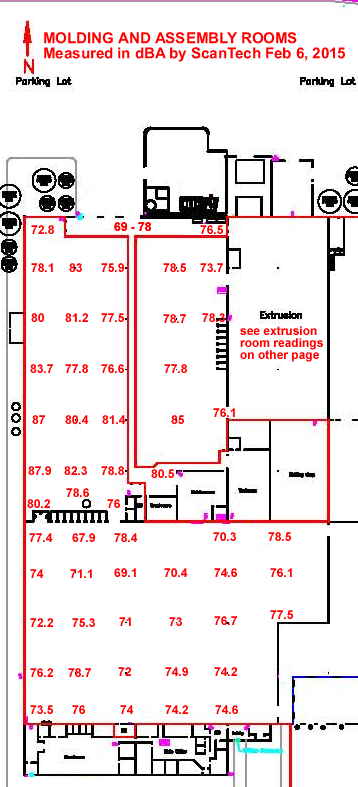
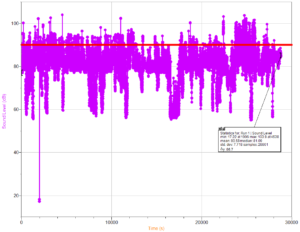
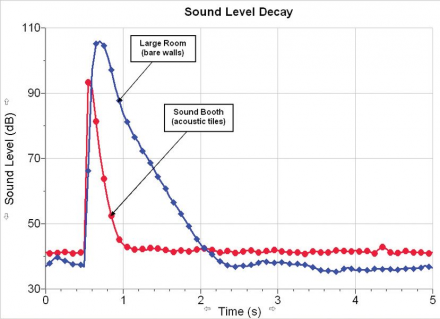
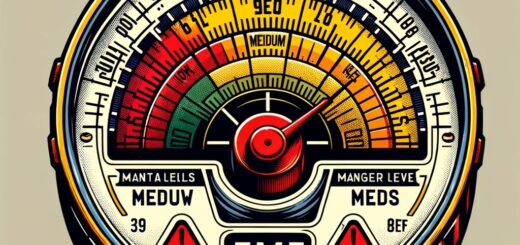
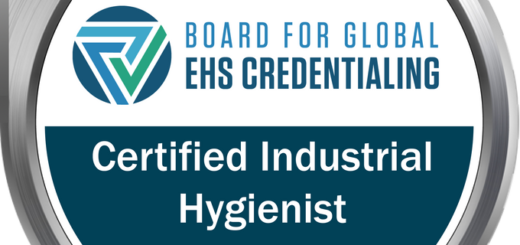
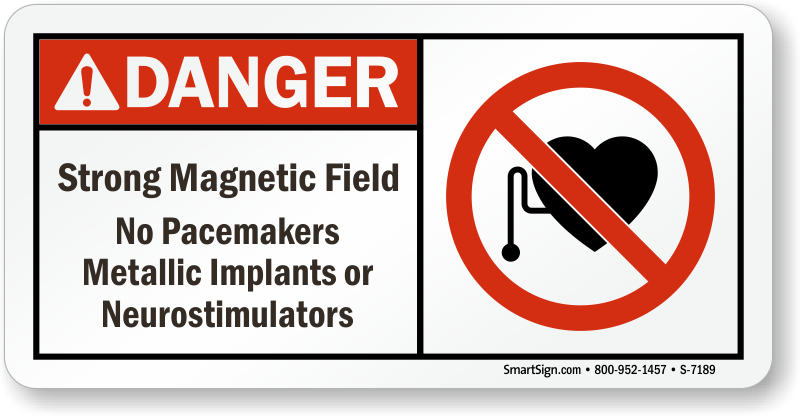
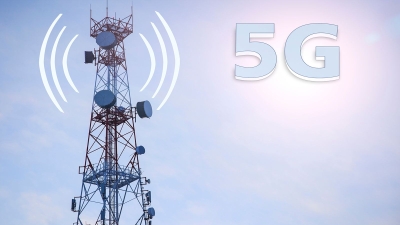
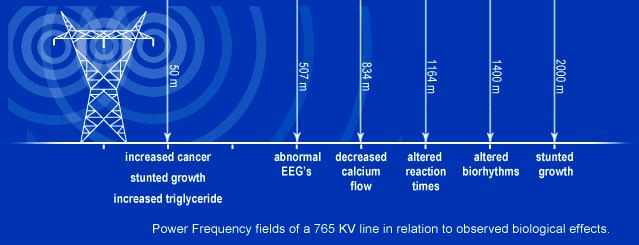
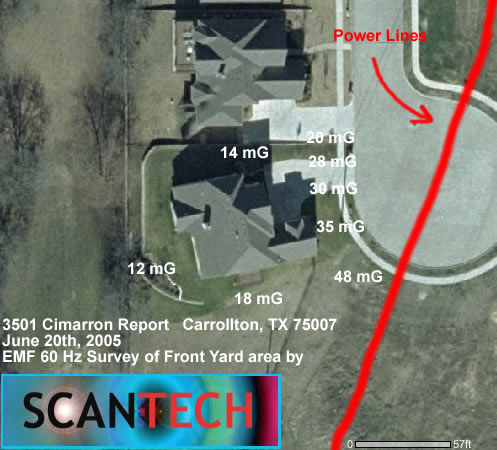
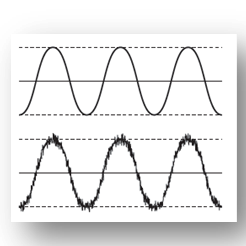
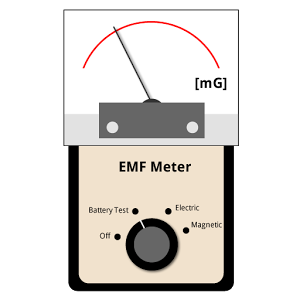
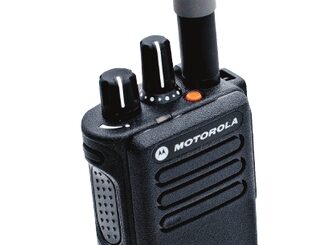

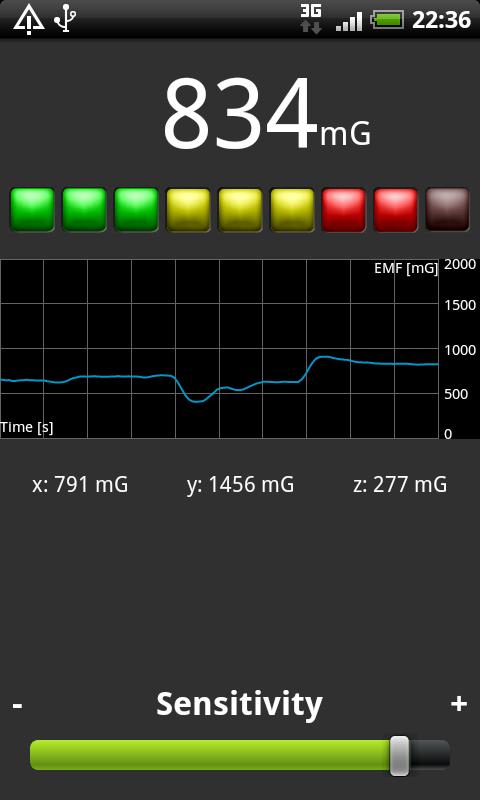
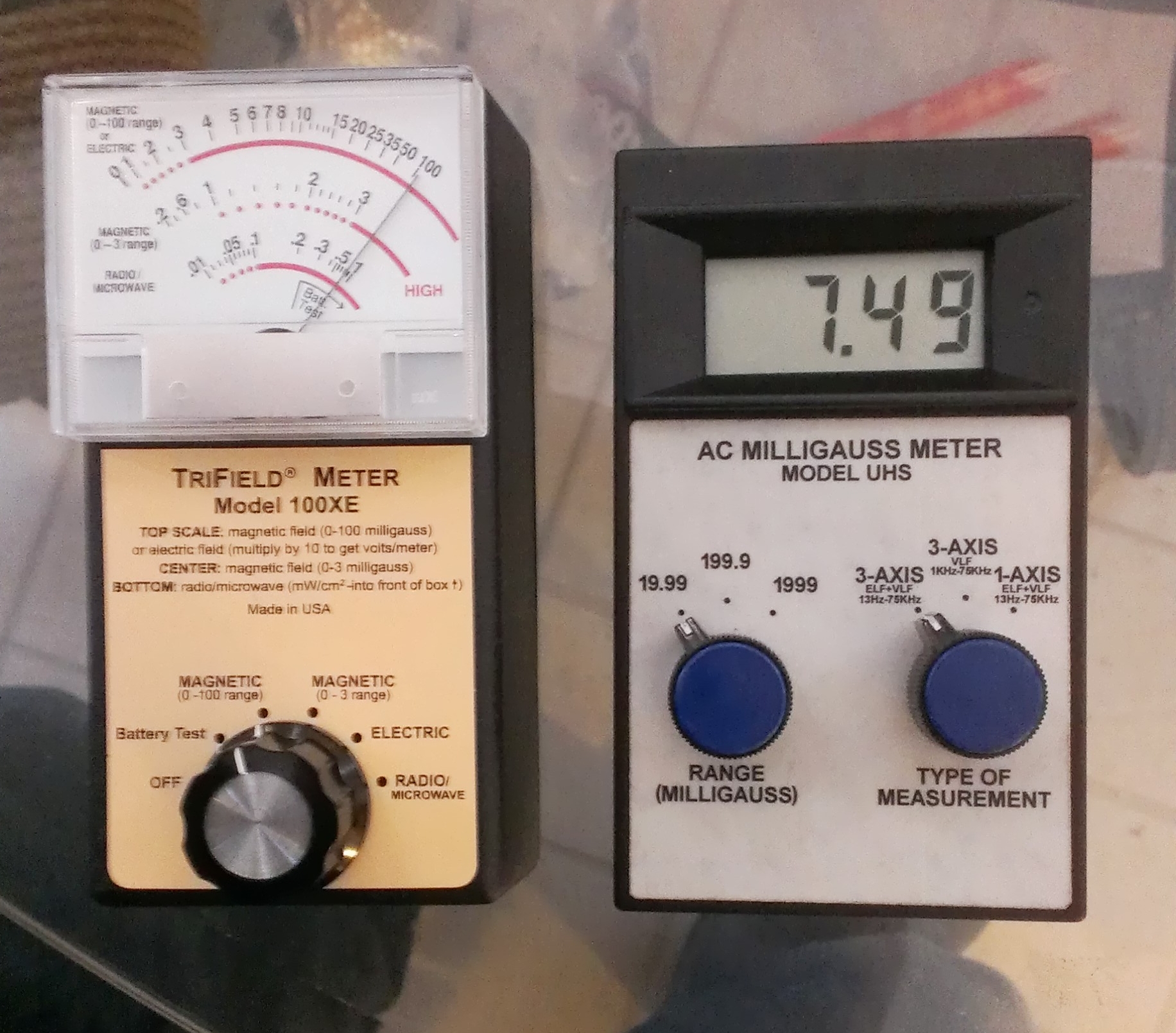
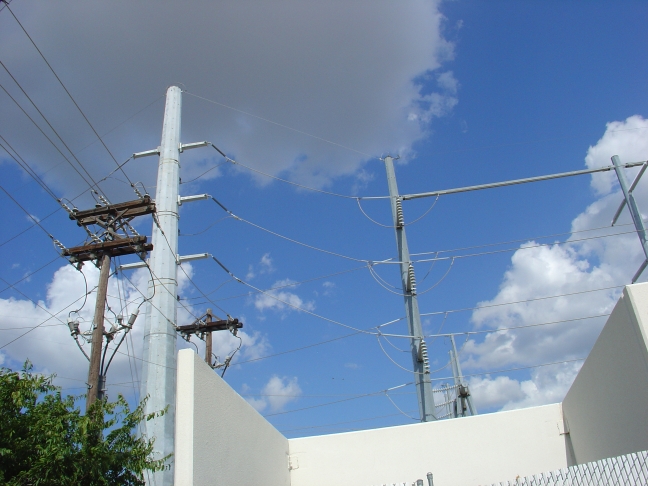
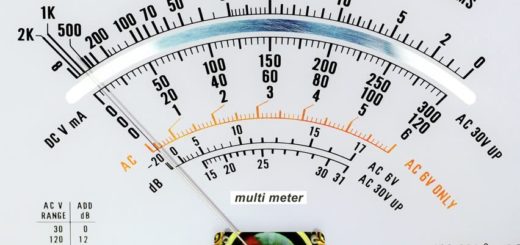
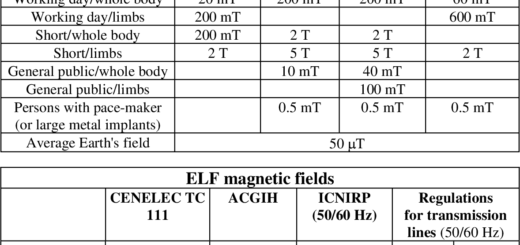
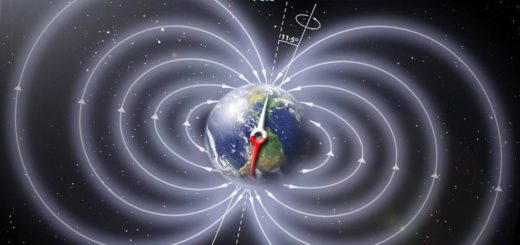
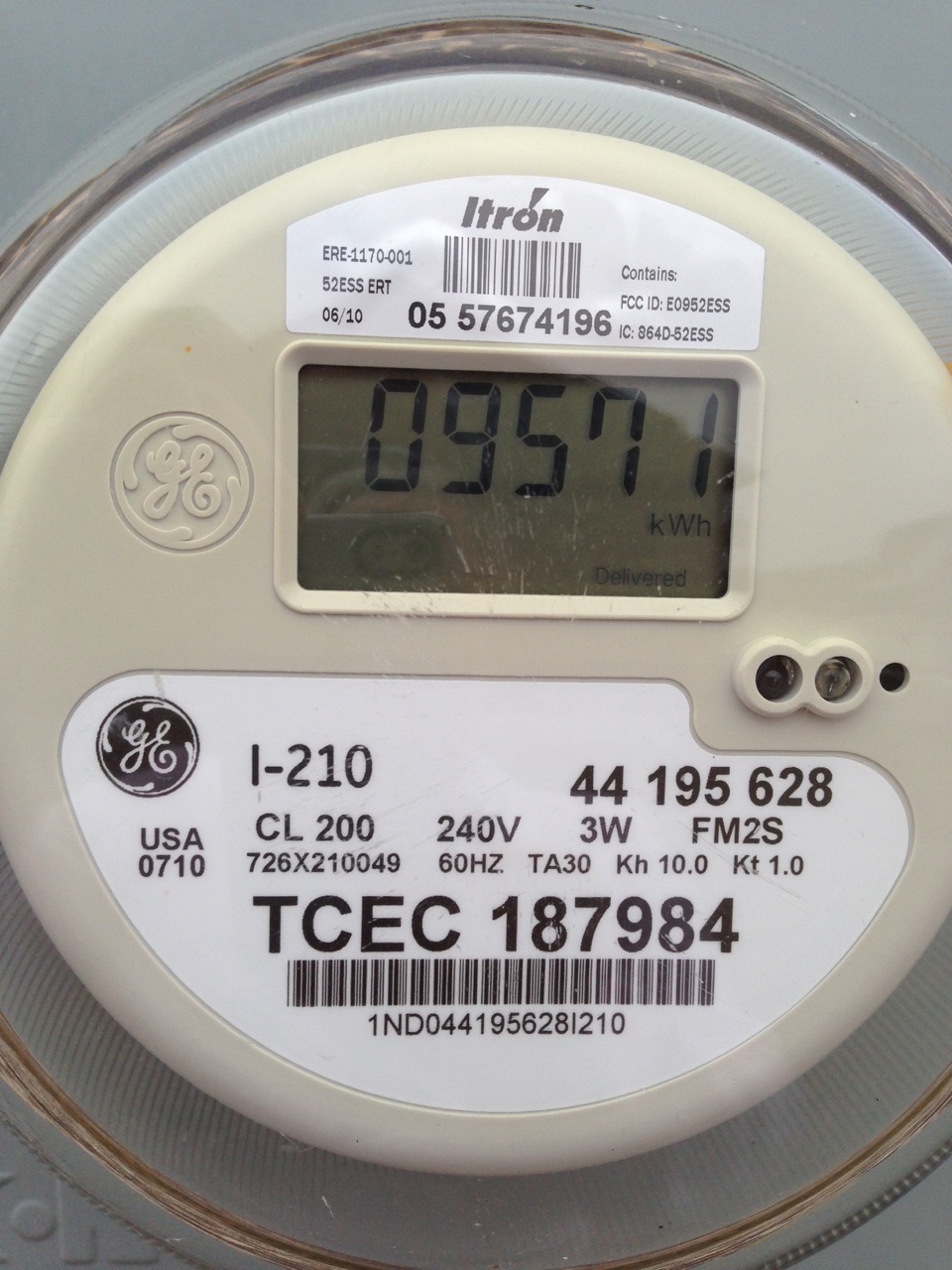



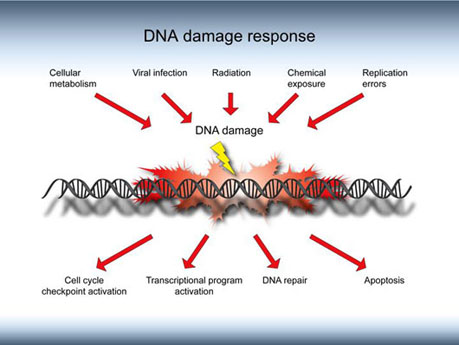
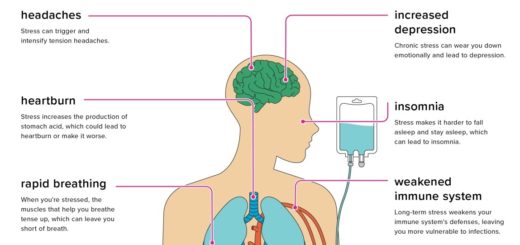
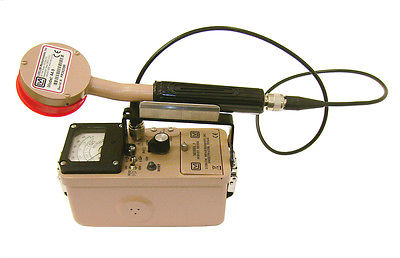
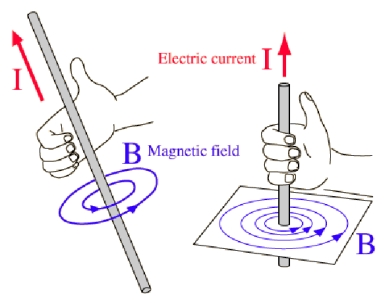
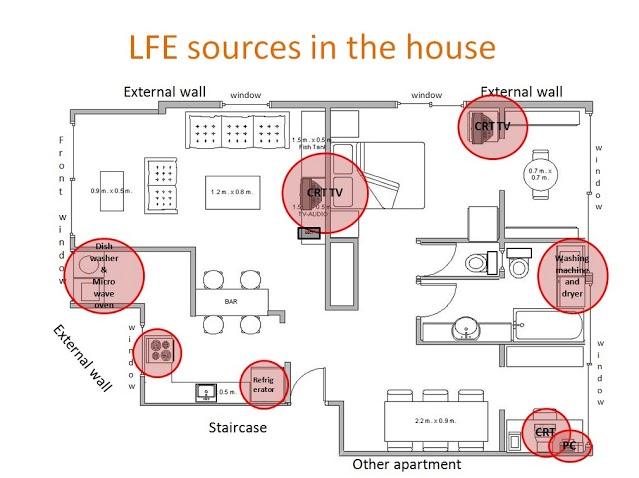
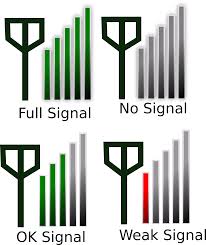
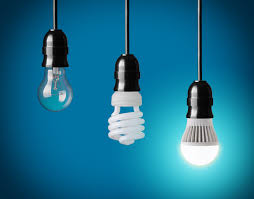
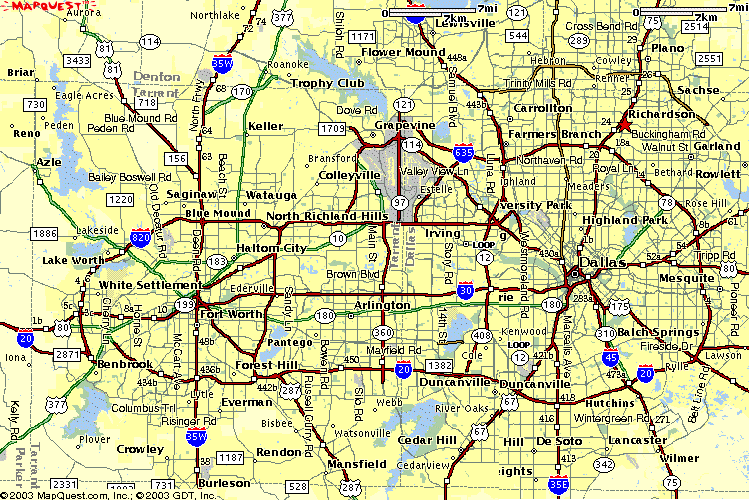
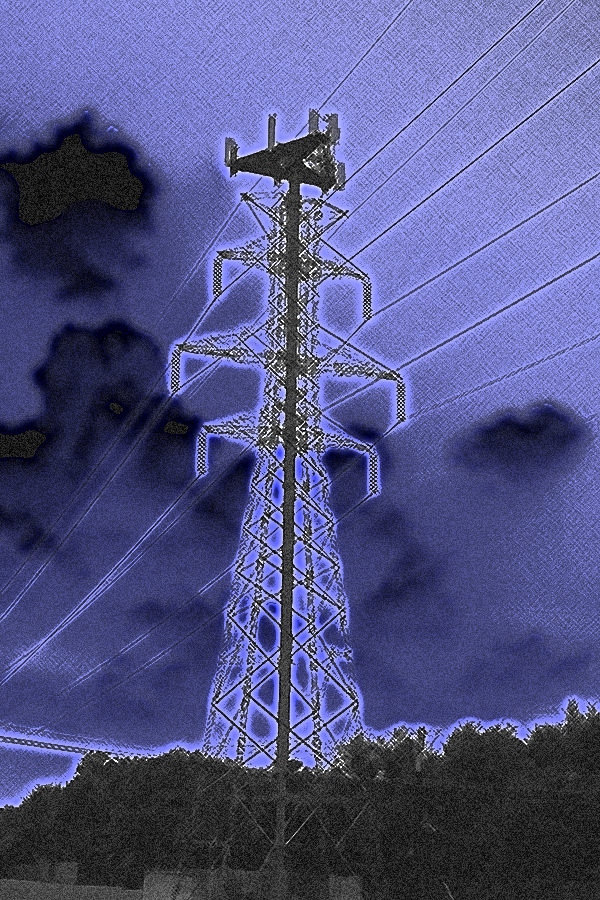
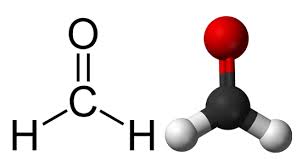
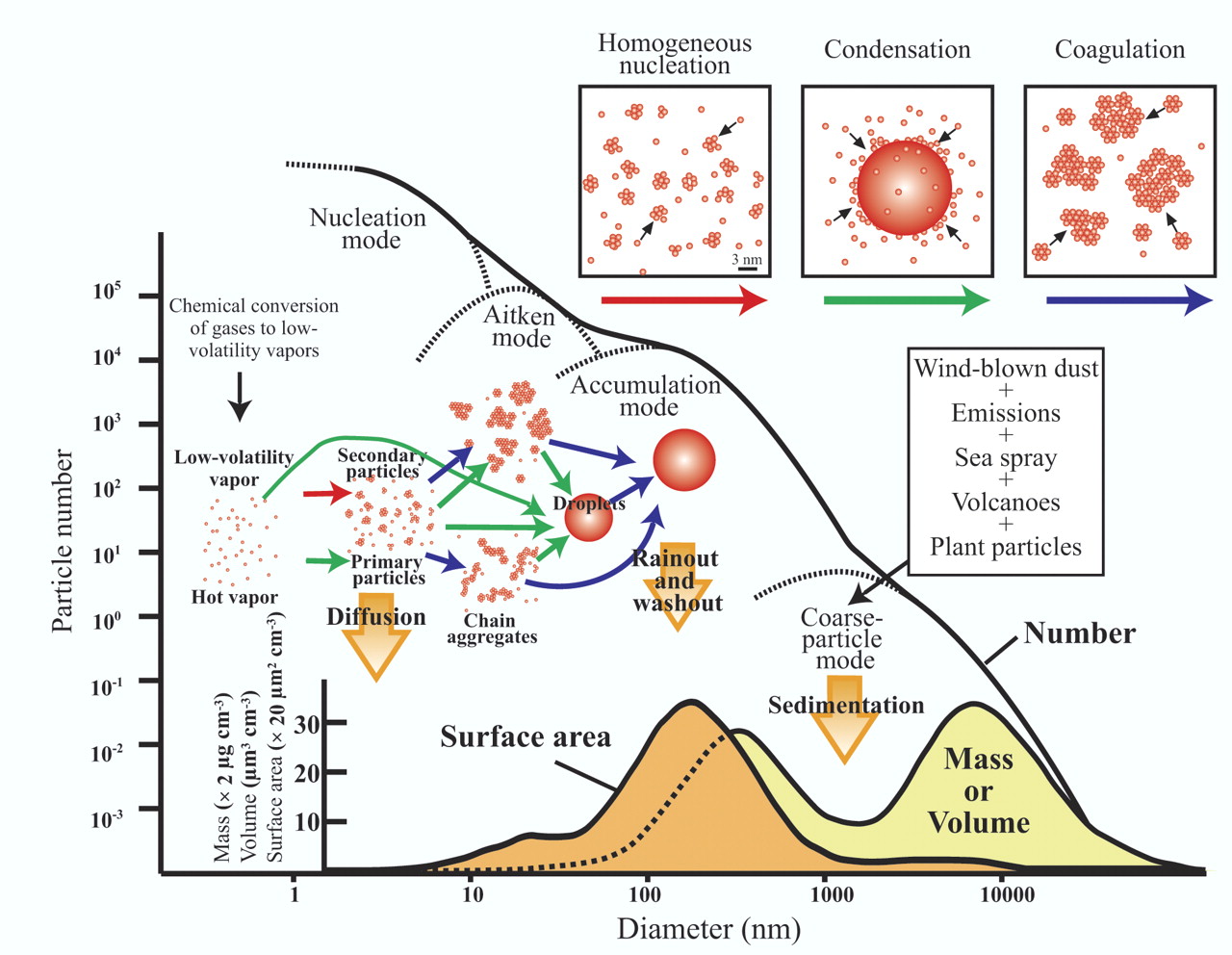
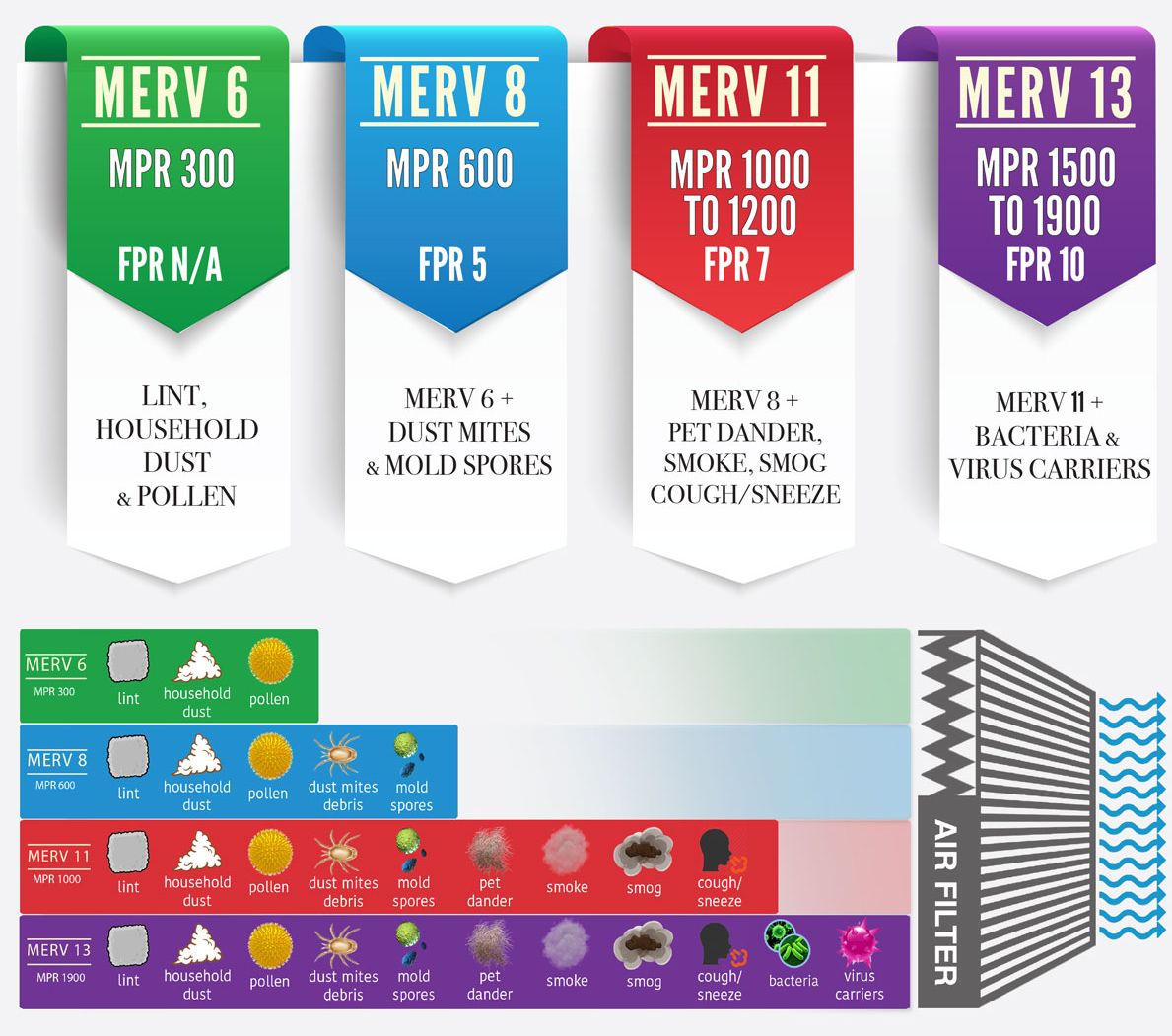
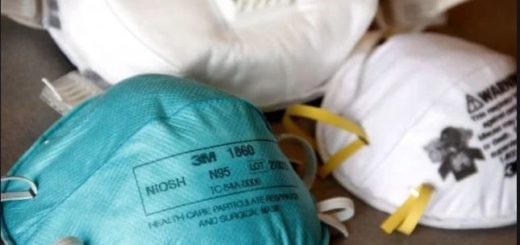
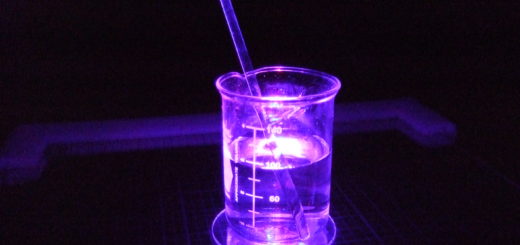
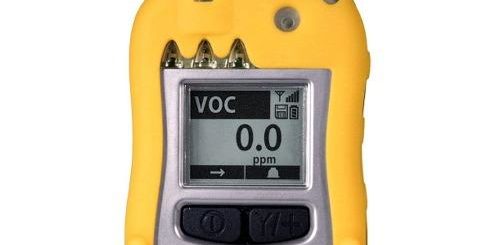
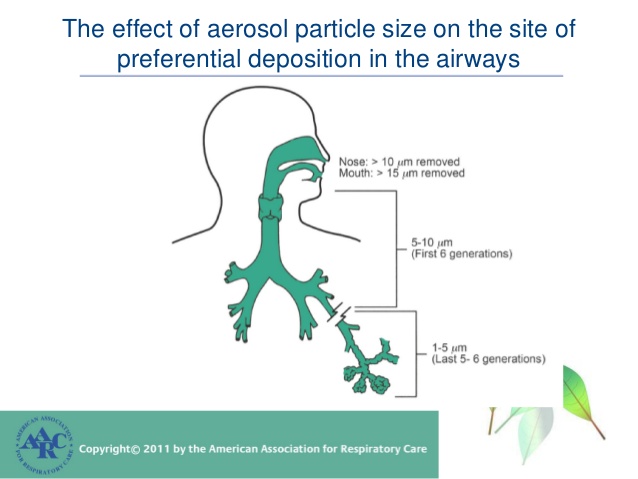
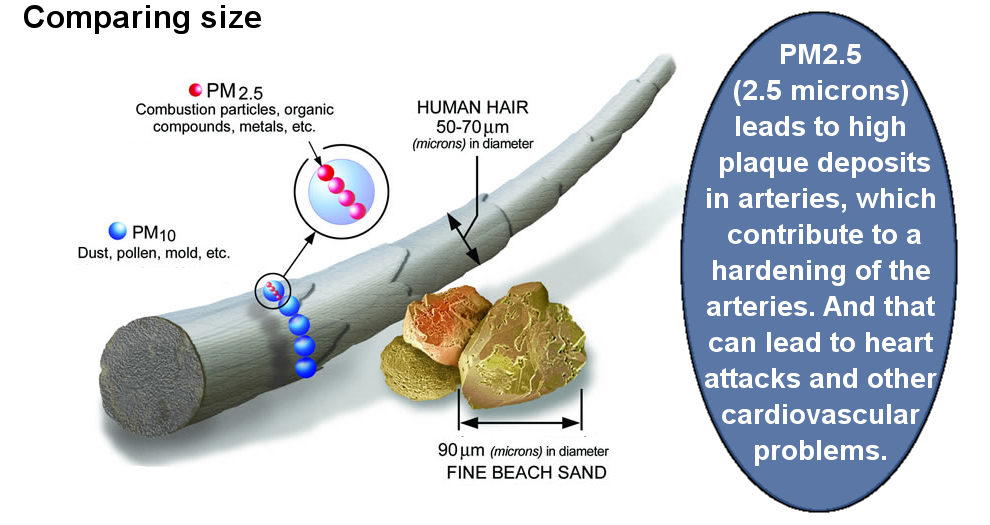
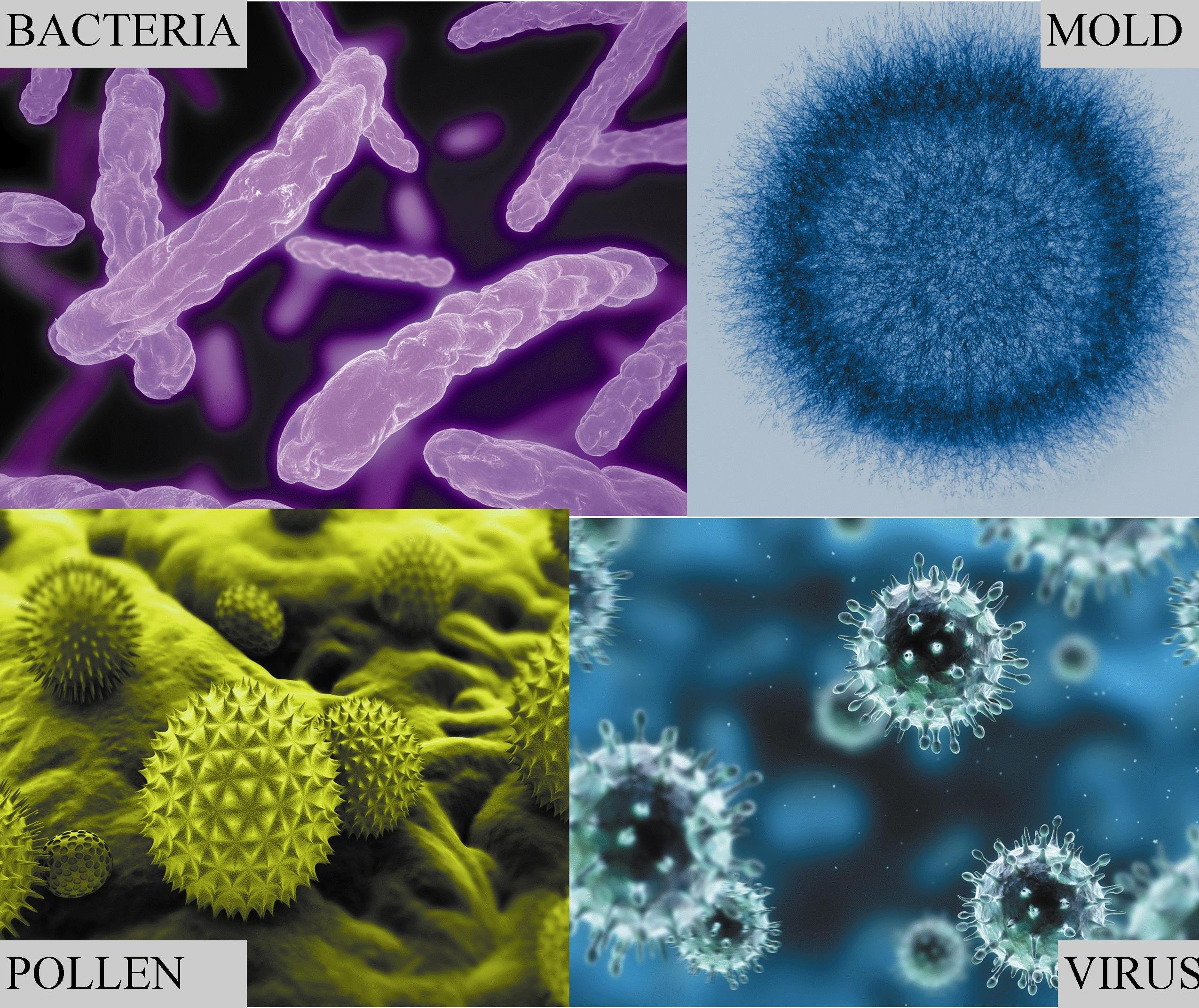
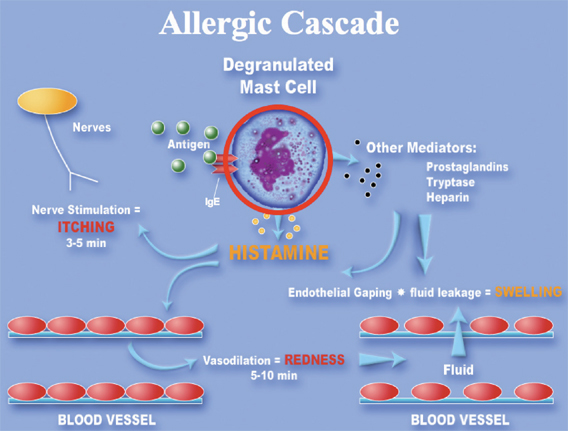
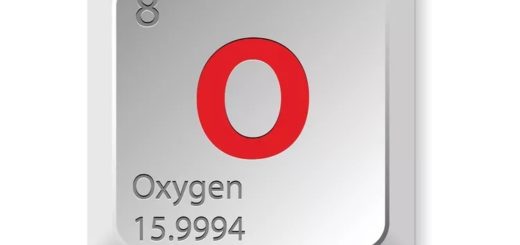
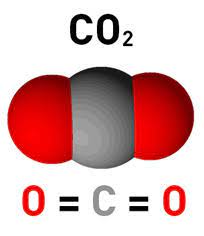
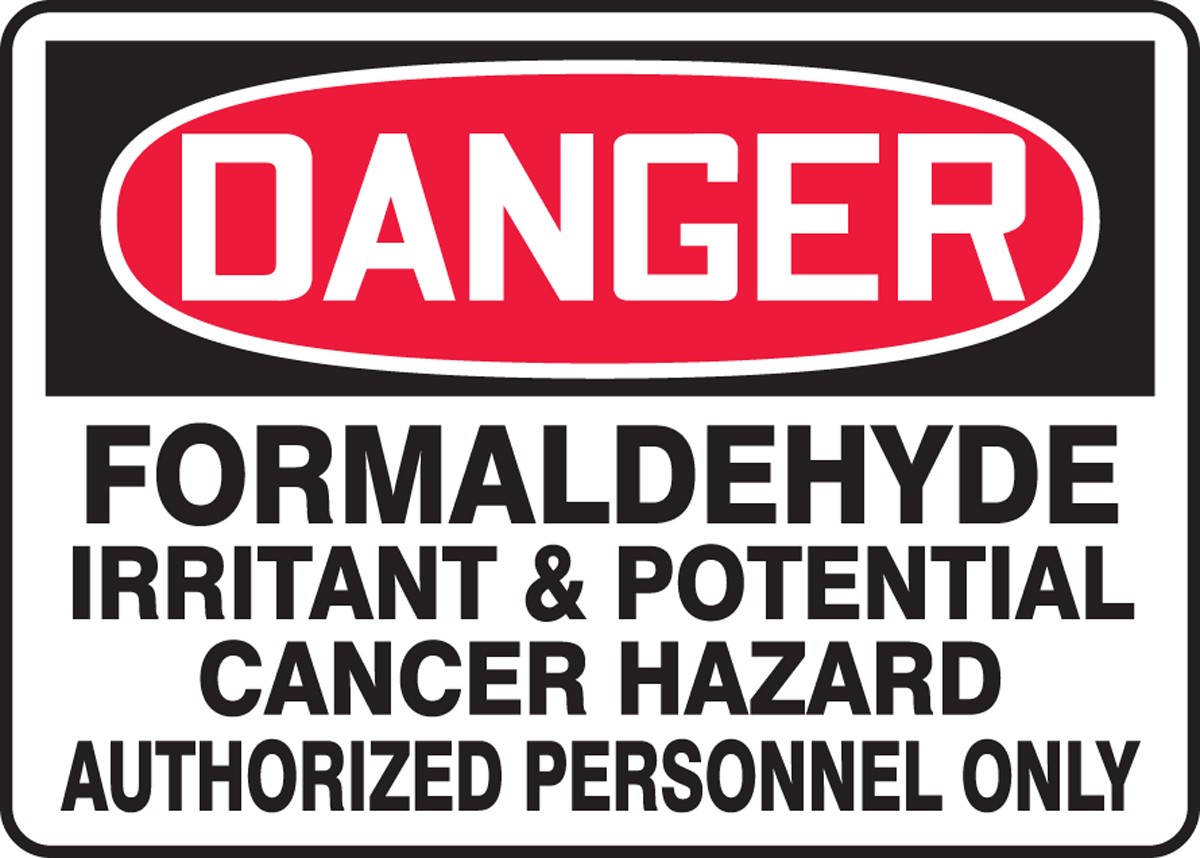
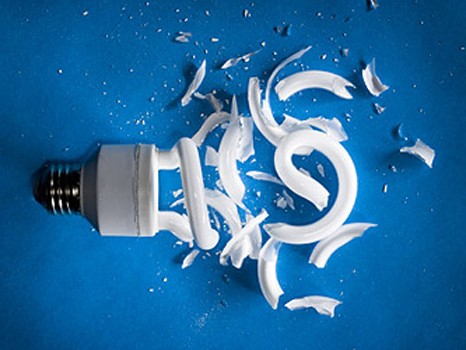
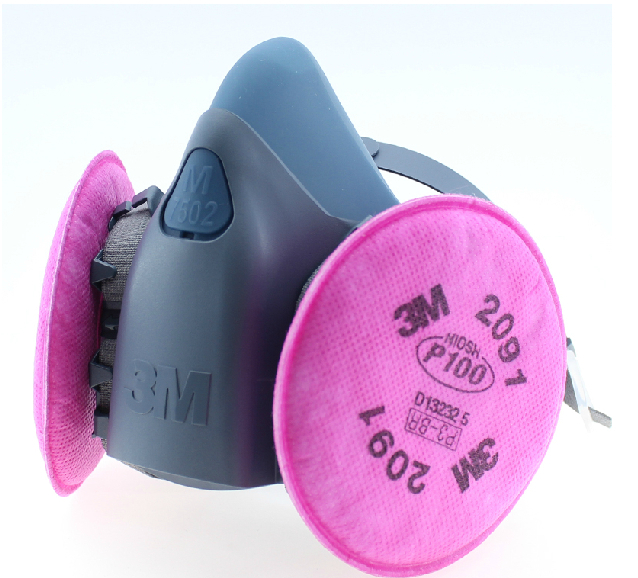
I know you no longer offer residential services, but can you point me in the direction of a local (Dallas) company that measures sound decibels for a noise complaint…any help will be greatly appreciated…thanks!
Mr. Steinberg,
There are very few companies in this region who even offer noise / decibel / sound level measurement and consultation for commercial and industrial clients, much less so for residential customers. I have no direct referrals to offer.
You might try talking to either a civil engineering firm and / or whomever does noise level enforcement for your municipality.
JAG of ScanTech